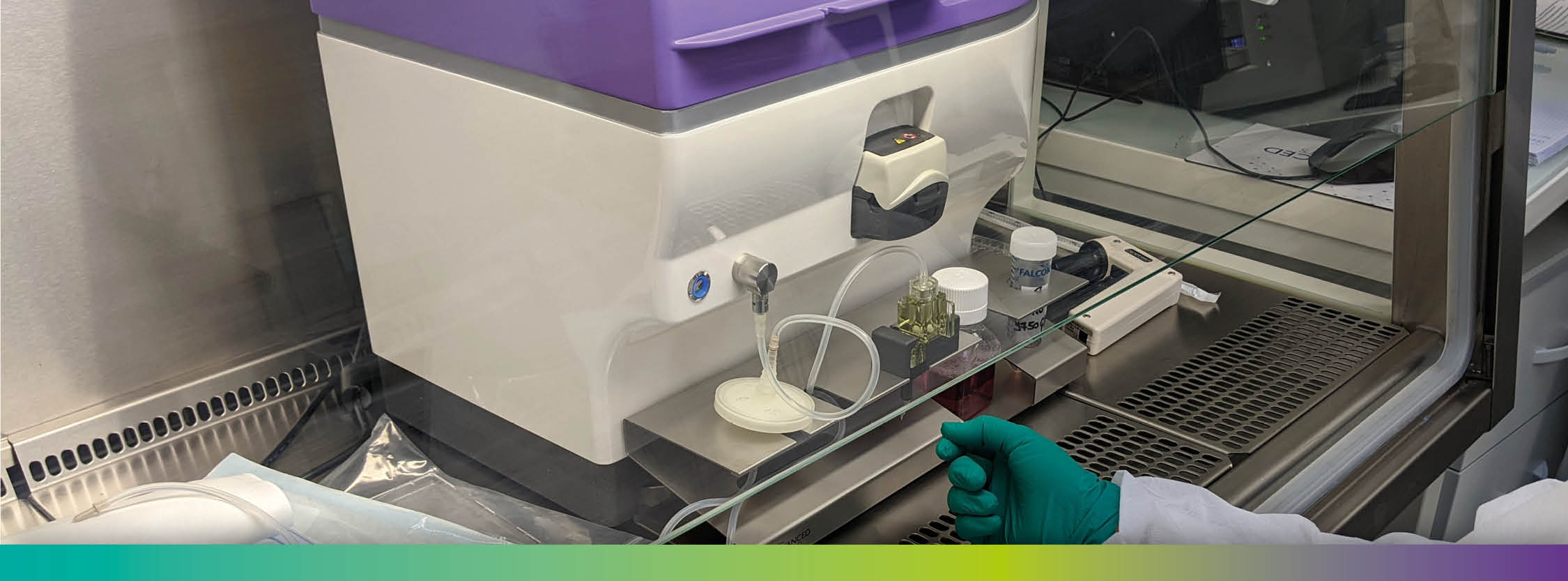
Clean Mails / Décembre 2024 - Clean Mails - Single Cell Cloning
New single cell cloning services to accelerate cGMP cell banks production

Single cell cloning is a central technique in cell biology to isolate and further propagate a single cell with specific genetic attributes. Crucial to research, where this process allows scientists to study cellular properties in a controlled setting, single cell cloning is also paramount to the biopharmaceutical industry, where cell substrates must show reproducible characteristics to ensure performance and safety through homogenous populations. Regulatory guidelines insist on demonstration of clonality through cell cloning as part of IND dossiers, in particular reference texts such as ICH Q5D, and EMA/CHMP’s “Guidance on Development, Production, Characterization, and Specifications for Monoclonal Antibodies and related Products (2008).
As a contract organization specializing in cGMP cell & virus banking and QC testing, Clean Cells knows the importance of qualitative cell line development. We thus implemented Solentim’s VIPS® PRO, a state-of-the-art single cell cloning platform to isolate potent clones and characterize the monoclonality of biotherapeutics producing cell lines, with an increased traceability as part of a regulatory compliant approach.
Solentim’s VIPS® PRO: unique characteristics for increased isolation efficiency and actual evidence of clonality
The VIPS® PRO (Verified In-situ Plate Seeding) is a single cell cloning platform designed with single-use consumables, combining an improved seeding efficiency with high-resolution full-well imaging, allowing the complete characterization of each clone, from single cell isolation proof to documented clonal expansion. These unique characteristics make it valuable for both generic cell types (HEK293, CHO, etc.) and more sensitive, rarer, material (iPSC, proprietary material, etc.).
One of the most distinctive features is the possibility to generate a droplet image of the clone at seeding which, combined with artificial intelligence for improved cell detection and discrimination between single cells and disposable material (aggregates, debris, etc.), increases single cell cloning efficiency, in particular cell sorting yields.
The second feature is the capacity, after the initial seeding and cell sedimentation, to scan the entire wells with a very high resolution (by combining several high-magnification images) at day 0, which serves as actual evidence of clonality and at regular timepoints to monitor the clonal expansion phase. This constitutes a very valuable data that can be issued in an automated report for IND dossiers and for traceability purposes in further cGMP use.
From single cell cloning to cGMP banks
After cloning, monoclonal populations of interests are typically selected based on performance with a restricted number of generated R&D banks.
Through extensive understanding of hundreds of cell models and state-of-the-art QC assays, Clean Cells is able to seamlessly take up the cell clones and generate quality R&D banks while discriminating the most potent ones through:
- Functional testing: revival/growing assessment, post-transfection or post-infection productivity assessment , etc.
- Stability evaluation at late passages: cell morphology and productivity, cell culture characteristics, genomic stability characterization, etc.
Once the single cell cloning and functional selection are completed, Clean Cells can transfer the processes and material to our qualified environment for cGMP manufacturing of cell banks. An integrated QC & characterization portfolio of assays ensure the safety and identity of these cGMP banks, further employed in cGMP biologics manufacturing at the sponsor’s or at our preferred partner’s facility.
This implementation of the single cell cloning platform thus strengthen our one-stop-shop offer for sponsors, from cell line development to ready-to-use cGMP banks.